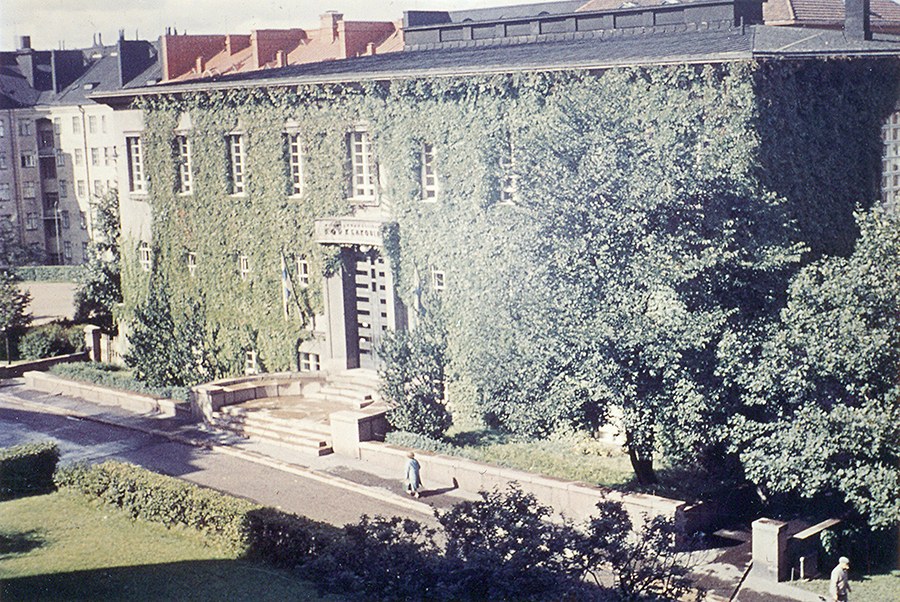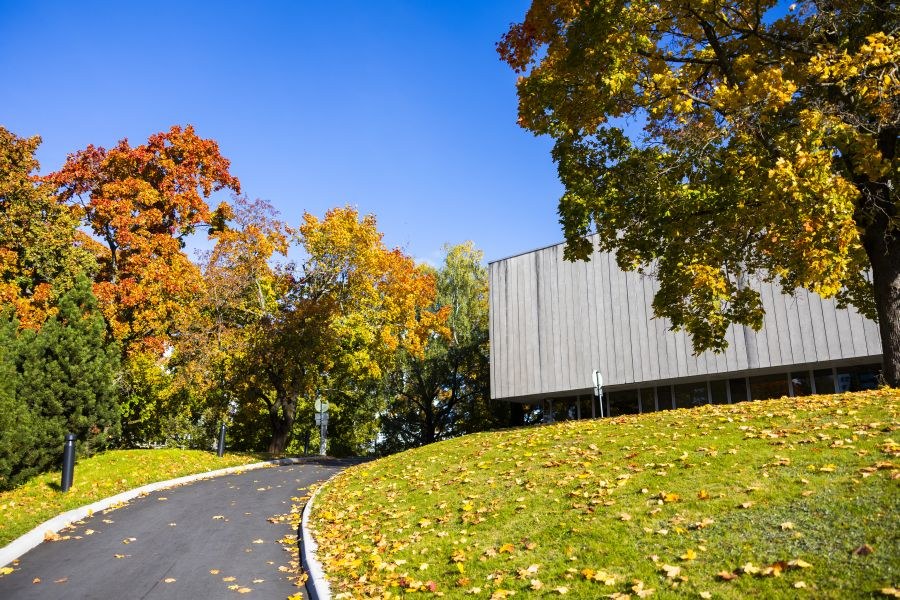SOC 75 years - Faculty of Social Sciences engages in dialogue and treasures a sense of community

In 1925 – nearly a century ago – Civic College was founded in Helsinki, marking the start of education and research in social sciences at the university which is currently known as Tampere University.
Civic College, which was located on Franzeninkatu in Helsinki, later changed its name to the School of Social Sciences (YKK). When the Faculty of Social Sciences was established in 1949, YKK had, in the words of Professor Yrjö Ruutu, become a “complete higher education institution in every respect” (citation Rasila 1973, p. 124).
In Tampere, YKK started with 10 professorships and one faculty. The Faculty of Social Sciences was followed by the Faculty of Humanities (1964) and Faculty of Economics and Administration a year later. In Tampere, the higher education institution was renamed as the University of Tampere in 1966.
The Faculty of Social Sciences (SOC) is arranging a seminar to celebrate the 75th anniversary of the Faculty of Social Sciences (tuni.fi). SOC will also celebrate in Pori. The Pori Unit of Tampere University will arrange a seminar as the Unit celebrates its 20th anniversary on 14 November 2024. Paikka, kulttuuri ja merkitykset -juhlaseminaari (tuni.fi) (in Finnish).
SOC currently comprises four academic units:
Societal orientation creates a bond between four units
In early spring 2024, SOC’s future forum emphasised the community spirit; “good practices arise from within us” was the key takeaway. Societal impact is also collectively achieved. The SOC community values multidisciplinarity and recognises the importance of acknowledging the differences between academic units.
At the future forum, faculty members highlighted the centrality of learning. At SOC, research and teaching support critical thinking on society as well as people’s well-being, health, and functional ability in the global and complex world. SOC educates professionals and experts for various sectors of working life.
SOC offers bachelor’s and master’s programmes in social sciences, health sciences, humanities, psychology, and logopedics. Each year, just under 400 masters students and about 40 doctoral students graduate at SOC.
The major research themes are promoting well-being and health and understanding and governing social change. Multidisciplinarity is the faculty’s hallmark.
As its societal mission, SOC fosters critical discussions about the state and direction of society.

Dean Liisa Häikiö of the Faculty of Social Sciences, what do the diversity and uniqueness of SOC’s units mean for university work?
Our faculty represents a wide range of disciplines, from logopedics to traditional social sciences, and from philosophy to public health sciences. The uniqueness of these disciplines naturally creates distinct characteristics within the units, influenced by their different histories, sizes, and structures. However, I would emphasise the commonality between the units: our research and teaching are societally oriented across health sciences, humanities, and social sciences. That is what unites us.
What does the combination of four units bring to teaching and research?
Collaboration and the integration of diverse perspectives. Most teaching occurs in the degree and doctoral programmes, but we have established common practices and principles for teaching as well as shared courses and modules across the entire faculty. In research, we value researcher-driven projects and strive to support researchers within the research groups, centres, units, and the faculty. The multidisciplinary nature of the faculty adds a unique dimension to our collaborations and scientific openings.
How do you feel about hearing faculty members’ thoughts on community and nurturing diversity?
I feel very positive about them and see them as one of our strengths. We strive to value diversity and different perspectives even though it is not always easy. In my opinion, we also have a strong understanding of the importance of community in academic work. The COVID-19 period created a clear deficit in the sense of community. Physical distance and telemeetings have narrowed our perception of who we are and what kind of community we are. I have found that both staff and students long to strengthen our sense of community again. We need a shared understanding of why our work is meaningful and what brings us together. People crave shared efforts and the celebrations that follow!
What do you think about the role and significance of social sciences in society and the impact of your activities?
The Faculty of Social Sciences has renewed itself over the years while maintaining strong traditions. From the impact point of view, you can ask what kind of Finland we would be living in if the Faculty of Social Sciences had not been established 75 years ago. Tampere University has been and continues to be a key educator of professionals and experts for the welfare state and a producer of knowledge that renews Finnish society. This meaning and impact is very long-lasting and cumulative.
We are living in a period of social upheaval where the disruption of natural processes and the end of the fossil economy are changing the foundations of society. There is a great need for knowledge and societal expertise that renews both research and society. It is no wonder that our researchers and teachers are widely respected in Finland and internationally. Young people find us a highly desirable place to study, and we are a reliable and competent collaborator for our cooperation partners.
Follow SOC’s anniversary in university news, the academic units’ news and social media #SOC75.
75th anniversary seminar of the Faculty of Social Sciences
SOC’s 75th anniversary seminar is arranged in the main auditorium of Päätalo on the city centre campus at 12.15–16.00 on 22 November 2024.
Words of welcome:
President Keijo Hämäläinen
Dean Liisa Häikiö
Keynote presentations:
Professor Jari Hietanen
Senior Research Fellow Rob Boddice
Professor Päivi Honkatukia
Professor Meri Koivusalo
Music
Memories:
Free word
After the seminar, a cocktail party is arranged at Alakuppila.





